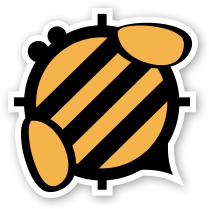# coding=utf-8
from ._commandbase import RadianceCommand
from ..datatype import RadianceBoolFlag, RadianceValue
from ..datatype import RadianceNumber
import os
from .pyRad import objview
[docs]class Objview(RadianceCommand):
use_open_gl = RadianceBoolFlag('g', 'use GlRad(openGl) to render the scene')
hemisphere_up = RadianceValue('u', 'hemisphere up direction')
back_face_visibility = RadianceBoolFlag('bv', 'back face visibility')
view_details = RadianceValue('v', 'view details')
num_processors = RadianceNumber('N',
'number of processors to render the scene',
num_type=int)
output_device = RadianceValue('o', 'output device to be used for rendering')
verbose_display = RadianceBoolFlag('e', 'display errors and messages')
disable_warnings = RadianceBoolFlag('w', 'disable warnings')
gl_rad_full_screen = RadianceBoolFlag('S',
'enable full screen options with glRad')
view_file = RadianceValue('vf', 'view file path')
scene_exposure = RadianceNumber('exp', 'scene exposure', num_type=float)
no_lights = RadianceBoolFlag('nL', 'render the scene without extra lights')
run_silently = RadianceBoolFlag('s', 'run the Radiance scene silently')
print_views = RadianceBoolFlag('V', 'print view details to standard output')
def __init__(self, use_open_gl=None, hemisphere_up=None, back_face_visibility=None,
view_details=None, num_processors=None, output_device=None,
verbose_display=None, disable_warnings=None, gl_rad_full_screen=None,
view_file=None, scene_exposure=None, no_lights=None,
run_silently=None, print_views=None, scene_files=None):
RadianceCommand.__init__(self, executable_name='objview.pl')
self.use_open_gl = use_open_gl
self.hemisphere_up = hemisphere_up
self.back_face_visibility = back_face_visibility
self.view_details = view_details
self.num_processors = num_processors
self.output_device = output_device
self.verbose_display = verbose_display
self.disable_warnings = disable_warnings
self.gl_rad_full_screen = gl_rad_full_screen
self.view_file = view_file
self.scene_exposure = scene_exposure
self.no_lights = no_lights
self.run_silently = run_silently
self.print_views = print_views
self.scene_files = scene_files
@property
def scene_files(self):
"""Get and set scene files."""
return self.__scene_files
@scene_files.setter
def scene_files(self, files):
if files:
self.__scene_files = [os.path.normpath(f) for f in files]
else:
self.__scene_files = []
[docs] def to_rad_string(self, relative_path=False):
objview_python_path = objview.__file__
cmd_path = self.normspace(objview_python_path)
use_open_gl = self.use_open_gl.to_rad_string()
hemisphere_up = self.hemisphere_up.to_rad_string()
back_face_visibility = self.back_face_visibility.to_rad_string()
view_details = self.view_details.to_rad_string()
num_processors = self.num_processors.to_rad_string()
output_device = self.output_device.to_rad_string()
verbose_display = self.verbose_display.to_rad_string()
disable_warnings = self.disable_warnings.to_rad_string()
gl_rad_full_screen = self.gl_rad_full_screen.to_rad_string()
view_file = self.view_file.to_rad_string()
scene_exposure = self.scene_exposure.to_rad_string()
no_lights = self.no_lights.to_rad_string()
run_silently = self.run_silently.to_rad_string()
print_views = self.print_views.to_rad_string()
rad_string = "%s %s " % (self.python_exe_path, cmd_path)
# Lambda shortcut for adding an input or nothing to the command
def add_to_str(val):
return "%s " % val if val else ''
objview_param = (use_open_gl, hemisphere_up, back_face_visibility, view_details,
num_processors, output_device, verbose_display,
disable_warnings, gl_rad_full_screen, view_file, scene_exposure,
no_lights, run_silently, print_views)
for parameter in objview_param:
rad_string += add_to_str(parameter)
rad_string += " %s" % (" ".join(self.scene_files))
# make sure input files are set by user
self.check_input_files(rad_string)
return rad_string
@property
def input_files(self):
"""Return input files by user."""
return self.scene_files
